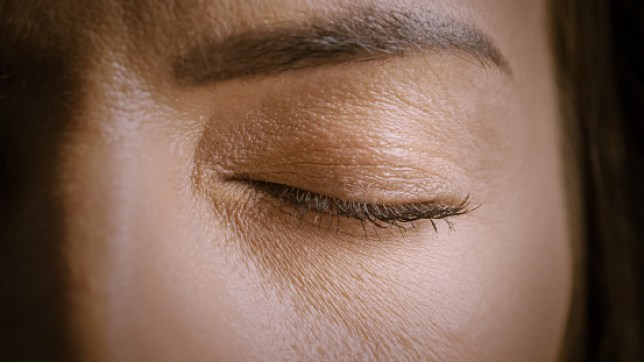Scientists have figured out why we blink so much, but it’s not for the reason you think it is.
Researchers from the University of Rochester have discovered the action no one thinks about actually helps us process visual information.
It’s long been thought the main reason we blink is to keep our eyes moist, cleaning out dust and debris to help prevent infection and injury when needed.
However, if the function was simply to stop them drying out, we would blink less– on average humans blink around 14-17 times a minute, which adds up to more than 20,000 times a day.
And although each blink only lasts between 0.1 and 0.4 seconds, in total it means we spend close to 8% of our waking hours with our eyes closed.
To investigate this extra time with our eyes closed, researchers in the new study tracked eye movements in human observers as they watched a range of stimuli, such as patterns that had different levels of detail.
They then coupled this with computer models and spectral analysis – which estimates the power of signals – to figure out how blinking affects vision and the way the brain processes it.
They found that blinking helps people take in the ‘big picture’ of a scene, and notice large-scale, slowly changing patterns.
Essentially like a live ‘spot the difference’.
Co-author Professor Michele Rucci said: ‘By modulating the visual input to the retina [back of the eye], blinks effectively reformat visual information, yielding luminance signals that differ drastically from those normally experienced when we look at a point in the scene.’
The researchers discovered rapid motion of the eyelid during a blink changes the light patterns that stimulate the retina. This sends a different type of visual signal to the brain compared to when our eyes are open and focused on something.
First author Bin Yang said: ‘Contrary to common assumption, blinks improve – rather than disrupt – visual processing, amply compensating for the loss in stimulus exposure.’
The research was published in the journal PNAS.
MORE : How eye drops could help stop the UK’s STI epidemic
MORE : We may finally know why pandas are so bad at sex
MORE : Warning to seafood lovers as major problem could be ‘underestimated’
Get your need-to-know
latest news, feel-good stories, analysis and more
This site is protected by reCAPTCHA and the Google Privacy Policy and Terms of Service apply.









